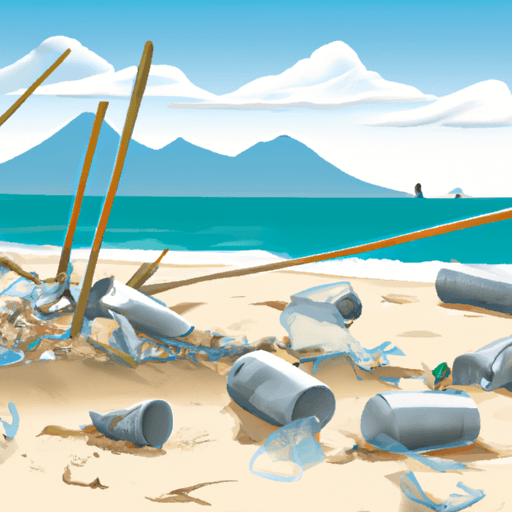Understanding the Environmental Impact of Over-tourism
Over the past few decades, tourism has exponentially grown into a major global industry. However, alongside the economic prosperity it brings, tourism has significant impacts on the environment. This piece aims to explore the environmental ramifications of over-tourism, from increased waste generation to pollution, and underscores the need for sustainable tourism strategies.
Direct and Indirect Environmental Impacts of Over-Tourism
Tourism, especially in an uncontrolled magnitude, often leads to both direct and indirect environmental damage. These impacts vary from increased waste generation, high raw material consumption, and habitat destruction to pollution and strain on local resources.
Overcrowded tourist hotspots generate massive amounts of trash, significantly contributing to waste generation. The increased demand for accommodation, food, and transportation triggers a surge in raw material consumption. This often results in the loss of fauna, flora, and biodiversity, rampant habitat destruction, and even extinction of certain species. Pollution, in the forms of littering, sewage emission, and greenhouse gas emissions from transport, is a dire consequence of over-tourism. It also puts a strain on local resources like water and energy, creating unsustainable living conditions for natives.
Geographical Areas Critically Affected by Over-Tourism
Several popular tourist destinations worldwide are suffering the detrimental fallout of over-tourism. Venice, Italy, with its continuously sinking city and eroding infrastructure, stands as a stark example. The Great Barrier Reef in Australia has also been brutally hit by increased tourism, apparent in its deteriorating health.
In Asia, Thailand’s Maya Bay, made famous by the movie ‘The Beach,’ had to close its doors temporarily due to extreme environmental degradation. Similarly, Mount Everest, a revered pilgrimage for mountaineers, is grappling with accelerating ice melt and accumulating waste.
Sustainable Tourism – The Need of The Hour
In light of the surmounting environmental issues caused by over-tourism, adopting sustainable tourism policies is crucial. These strategies involve promoting the conservation of natural resources, minimizing the usage of water and energy, systematic waste management, and discouraging encroachment in sensitive habitats.
Countries like Costa Rica and New Zealand have already set a precedent in implementing effective sustainable tourism frameworks, which can serve as excellent models for other nations.
The Role of Travelers in Sustainable Tourism
Travelers equally bear the responsibility of reining in the environmental impacts of tourism. They must practice responsible travel habits such as minimizing waste generation, conserving water and energy, respecting local habitats and cultures, and preferring eco-friendly accommodations and transport.
Organizations like the United Nations World Tourism Organization (UNWTO) even offers a Sustainable Tourism Program that educates travelers on how to reduce their carbon footprint and promote positive change.
To sum up, while tourism offers numerous socioeconomic benefits, its unchecked growth leads to severe environmental damage. Therefore, encouraging sustainable tourism practices at both policy and individual levels is vital to ensure long-term environmental health.
















Comments
Leave a Comment